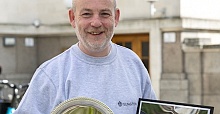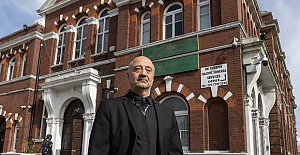Cancer rates are not expected to rise after Japan's Fukushima nuclear accident as people quickly left the area hit by the world's worst such disaster in 25 years, a U.N. scientific committee said on Friday. Wolfgang Weiss, a senior member of the United Nations Scientific Committee on the Effects of Atomic Radiation (UNSCEAR), said the evacuation of tens of thousands of people had sharply lowered radiation exposure. The dose levels were "so low that we don't expect to see any increase in cancer in the future in the population", he told reporters during an UNSCEAR meeting to discuss a draft report to be presented to the U.N. General Assembly later this year. A magnitude 9 earthquake and tsunami on March 11, 2011, killed nearly 19,000 people and devastated the Fukushima Daiichi nuclear plant, spewing radiation and forcing about 160,000 people to flee their homes. It was the biggest nuclear accident since a reactor exploded at the Chernobyl power plant in Ukraine in 1986. Studies into that accident have linked thyroid cancer to radioactive iodine from Chernobyl.
UNSCEAR's findings appeared to differ somewhat from a World Health Organisation (WHO) report published in February which said people in the area worst affected have a slightly higher risk of developing certain cancers.
Weiss suggested the UNSCEAR study, carried out by 80 experts and with the involvement of five international organisations including the United Nations health agency, was based on information covering a longer period after the accident.
"So they (the WHO) didn't have the full picture. We don't have the full picture either but we have more than one year in addition," he said.
UNSCEAR's 27 member states and 180 experts met this week in Vienna to scrutinise the report.
"The results are very straightforward ... the evacuation of many, many thousands of people resulted in a reduction of the dose that they would have received if they had stayed in the evacuation zone by a factor of 10," he said.
Highlighting the differences between Chernobyl and Fukushima, he said people close to the plant in the then Soviet Union were exposed to radioactive iodine that contaminated milk.
The thyroid is the most exposed organ as radioactive iodine concentrates there. Children are deemed especially vulnerable.
"In Chernobyl, many children used milk which had high iodine concentrations, resulting in high thyroid doses, resulting in an increase of thyroid cancer," Weiss said. "The doses through the thyroid in Japan are much, much lower."
Also when it came to exposure to another radioactive contaminant, the longer-lasting caesium, "we wouldn't expect any increase of ... cancers during the next decades", he said.
But he said a few workers at the plant had received very high radioactive doses in the early stages of the accident and they continued to be under medical surveillance.
No rise in cancer after Fukushima
senior member of UNSCEAR said the evacuation of tens of thousands of people had sharply lowered radiation exposure.
31 Mayıs 2013 Cuma 07:12
reads.
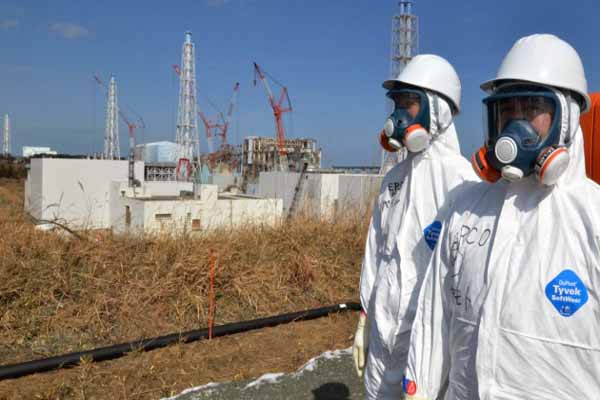



 The candidates vying to be the next London mayor
The candidates vying to be the next London mayor Enfield Council commits to anti-racism and diversity pledge
Enfield Council commits to anti-racism and diversity pledge President Erdogan promised supporters his party would learn its lessons from the defeat
President Erdogan promised supporters his party would learn its lessons from the defeat Mayor of London and London Assembly elections
Mayor of London and London Assembly elections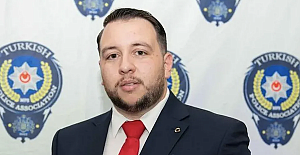 Off duty Police sergeant Eren Emin catch suspected thief while on stag do
Off duty Police sergeant Eren Emin catch suspected thief while on stag do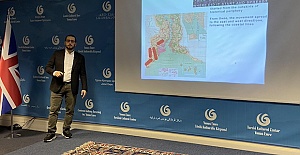 A Century of Urban Transformation, Istanbul’s Evolution
A Century of Urban Transformation, Istanbul’s Evolution Future Painters Exhibition at Tottenham Hotspur Stadium
Future Painters Exhibition at Tottenham Hotspur Stadium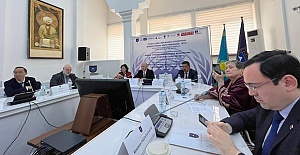 Models of Teaching International Journalism for Sustainable Development
Models of Teaching International Journalism for Sustainable Development English Premier League leaders Arsenal will visit title contenders
English Premier League leaders Arsenal will visit title contenders Liverpool meet Atalanta and West Ham face Bayer Leverkusen
Liverpool meet Atalanta and West Ham face Bayer Leverkusen Arsenal face Bayern Munich and Manchester City play Real Madrid
Arsenal face Bayern Munich and Manchester City play Real Madrid UK Transfer deadline day, the transfer window closes tonight
UK Transfer deadline day, the transfer window closes tonight Petrol prices on UK forecourts hit 150p a litre
Petrol prices on UK forecourts hit 150p a litre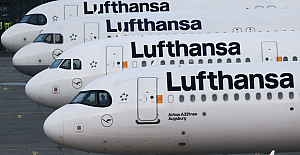 Europe's travel strikes: Flight and train disruption you can expect in April
Europe's travel strikes: Flight and train disruption you can expect in April Enfield Council website achieves digital inclusion recognition
Enfield Council website achieves digital inclusion recognition Enfield Council’s Planning Enforcement team goes from strength to strength
Enfield Council’s Planning Enforcement team goes from strength to strength
